Global Health
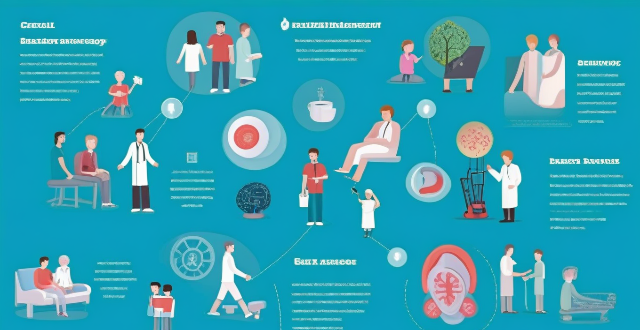
What is the role of technology in improving global health outcomes ?
Technology plays a crucial role in improving global health outcomes through advanced medical equipment, digital health solutions, and more. It has revolutionized diagnosis, treatment, disease surveillance, prevention, accessibility, affordability of healthcare services, research and development initiatives, and health literacy and education. Technology's impact on global health will continue to grow positively as it evolves at a rapid pace.
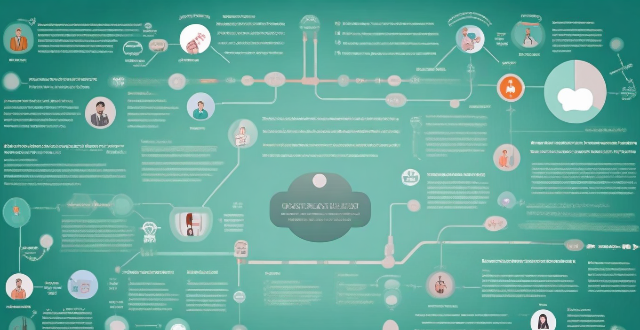
What is the importance of mental health in global health initiatives ?
This document discusses the importance of mental health in global health initiatives. It explains why mental health matters and how it affects physical health, economic stability, and social outcomes. The document also discusses how mental health affects global health initiatives and emphasizes the need for culturally sensitive approaches to address mental health issues sustainably.

What are the current global health challenges ?
The world is facing a multitude of health challenges that require immediate attention and action, including infectious diseases, non-communicable diseases, mental health issues, and environmental health hazards. Infectious diseases such as COVID-19, HIV/AIDS, tuberculosis, and malaria continue to be a major threat to global health. Non-communicable diseases like cardiovascular diseases, cancer, diabetes, and chronic respiratory diseases are becoming increasingly prevalent globally. Mental health disorders, including depression, anxiety disorders, and substance abuse, are a growing concern worldwide. Environmental factors such as air pollution, water pollution, climate change, and natural disasters also pose significant risks to human health.

How has the COVID-19 pandemic impacted global health security ?
The COVID-19 pandemic has significantly impacted global health security by overwhelming healthcare systems, necessitating public health policies such as lockdowns and quarantine measures, and highlighting the importance of international cooperation. The strain on healthcare systems included increased patient loads, shortages of medical supplies, and stress on the healthcare workforce. Public health responses involved vaccination programs, testing and tracing initiatives, and economic challenges due to lockdowns. International cooperation was essential for coordinating a global response, sharing information, and addressing misinformation. The pandemic also highlighted the need for resilient global health systems, sustained investment in public health infrastructure, collaborative research, and technological advancements. Overall, the COVID-19 crisis has prompted efforts to build stronger and more cooperative global health systems prepared for future emergencies.

What role does international cooperation play in enhancing global health security ?
In the realm of global health security, international cooperation plays a pivotal role. This collaboration among nations and organizations is crucial for addressing health challenges that transcend borders. Here's how international cooperation enhances global health security: ## Surveillance and Early Warning Systems - **Global Surveillance Networks**: By sharing information on disease patterns and potential threats, countries can work together to detect and respond to emerging health risks more effectively. - **Joint Research Efforts**: Collaborative research initiatives help to identify new pathogens and develop diagnostic tools, treatments, and vaccines. ## Strengthening Health Systems - **Capacity Building**: Weaker health systems can be supported through knowledge transfer, training programs, and infrastructure development. - **Resource Allocation**: International aid and funding can target areas most in need, improving healthcare access and quality. ## Coordinated Response to Health Crises - **Disaster Relief**: In times of crisis, such as natural disasters or large-scale outbreaks, international teams can provide urgently needed medical assistance. - **Policy Harmonization**: Aligning policies and procedures across countries ensures a cohesive approach to managing public health emergencies. ## Research and Innovation - **Technology Transfer**: The exchange of innovative medical technologies and practices can lead to better prevention and treatment options globally. - **Collaborative Trials**: Multi-country clinical trials accelerate the evaluation and adoption of new interventions. ## Education and Training - **Skill Development**: International educational programs prepare healthcare workers with the latest knowledge and skills. - **Public Awareness Campaigns**: Joint efforts in public health education can improve global health literacy and promote preventive measures. ## Norms and Standards - **Harmonization of Regulations**: Uniform standards for drugs, vaccines, and medical devices ensure quality and safety worldwide. - **Ethical Guidelines**: International ethical standards protect research participants and ensure the integrity of scientific endeavors. ## Financial Support - **Investment in Health**: International financing mechanisms provide critical funding for health programs. - **Economic Stabilization**: Financial support during health crises can prevent economic collapse in affected regions. ## Information Sharing - **Transparency**: Open communication about health issues encourages trust and cooperation among nations. - **Best Practices**: Sharing successful strategies helps all countries learn from each other's accomplishments and mistakes.

What is the relationship between forest health and the global carbon cycle ?
The text discusses the relationship between forest health and the global carbon cycle. It highlights the importance of forests in absorbing carbon dioxide from the atmosphere and storing it in their biomass, which helps to mitigate the effects of climate change. Deforestation, or the clearing of forests for agricultural or urban development purposes, has a significant impact on the global carbon cycle by releasing carbon stored in trees back into the atmosphere as CO2. Healthy forests are more effective at sequestering carbon than degraded or damaged forests. Several strategies can be implemented to maintain the health of forests, including protecting existing forests, restoring degraded forests, promoting sustainable forestry practices, reducing emissions from deforestation and forest degradation, and increasing public awareness.
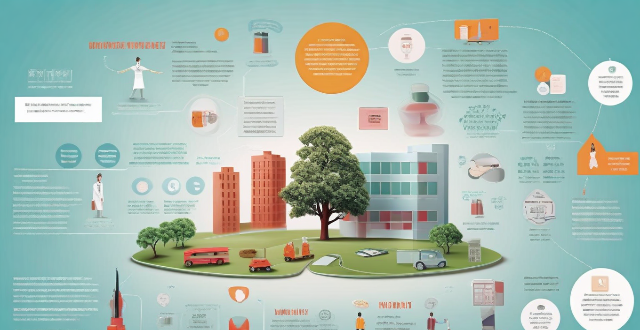
What is the importance of research and development in improving global health security ?
Research and development (R&D) play a vital role in advancing global health security by improving disease detection, prevention, control measures, strengthening health systems, driving innovation, addressing antimicrobial resistance, preparing for future pandemics, and promoting equity and accessibility. R&D leads to the development of advanced surveillance systems, diagnostic tools, vaccines, medications, public health interventions, health infrastructure, technology, capacity building, cross-disciplinary approaches, open science, economic growth, sustainable development, novel antimicrobials, stewardship programs, risk assessment, pan-sectoral approaches, universal health coverage, and global health initiatives.
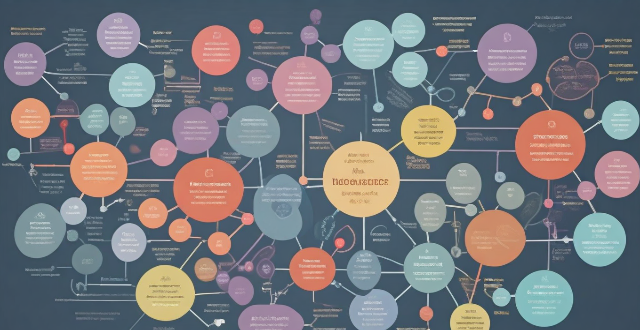
How does equitable vaccine distribution affect public health outcomes ?
Equitable vaccine distribution is crucial for global health security, herd immunity, reduced disease severity, economic stability, and social equity. It leads to decreased transmission rates, improved global health indicators, increased trust in health systems, and enhanced research. However, logistical hurdles, political will, and resource allocation are challenges that must be addressed.

Why is vaccine equity important for global health ?
Vaccine equity is crucial for global health as it ensures fair distribution of life-saving vaccines worldwide. It helps prevent disease outbreaks, reduce health inequalities, promote economic stability, and improve overall health outcomes. By ensuring everyone has access to vaccines, we can create a healthier world for all.

How can countries improve their preparedness for global health emergencies ?
Countries can improve their preparedness for global health emergencies by strengthening healthcare infrastructure, developing surveillance and early warning systems, enhancing international cooperation, improving public health education and awareness, and establishing contingency plans and policies.

What is the role of the World Health Organization (WHO) in promoting global health ?
The World Health Organization (WHO) plays a crucialThe World Health Organization (WHO) plays a crucial by providing leadership, setting norm WHO's work is focused on improving health outcomes worldwide through various activities such as convening stakeholders, establishing international standards for health, generating scientific knowledge to inform policy decisions, providing technical support to countries, and monitoring global health trends.
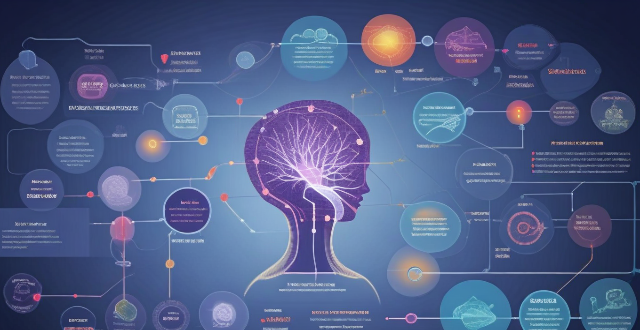
What are the potential health risks associated with global warming ?
Global warming, caused by human activities, poses various health risks including heat-related illnesses like heatstroke and dehydration, spread of diseases such as malaria and Lyme disease, respiratory problems including asthma and allergies, and mental health issues like anxiety, depression, and PTSD. It is crucial to take measures to mitigate these effects and safeguard public health.

How has the COVID-19 pandemic affected global health ?
The COVID-19 pandemic has significantly impacted global health by increasing infection and mortality rates, straining healthcare systems, causing mental health concerns, affecting healthcare economics, prompting public health policies and responses, and potentially causing long-term effects.
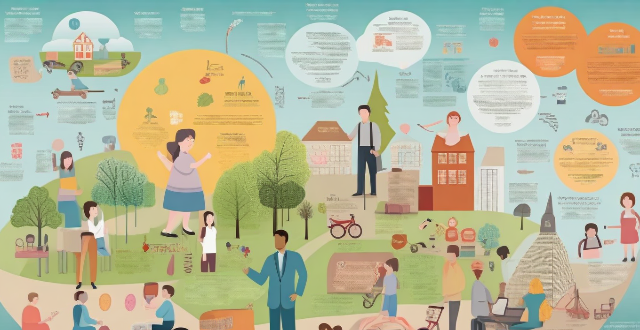
How can we promote public awareness and education about global health issues ?
Promoting public awareness and education about global health issues is crucial for improving the overall well-being of populations worldwide. There are several strategies that can be employed to achieve this goal, including using multiple communication channels, collaborating with influencers and celebrities, conducting public health campaigns, engaging with schools and universities, partnering with NGOs, developing interactive tools and applications, and hosting public seminars and workshops.

How do women's health and education projects address global disparities ?
Women's health and education are crucial for global development, affecting communities' well-being. Women's health projects ensure access to quality healthcare services, including prenatal care and family planning. Education initiatives promote gender equality by increasing girls' enrollment rates and eliminating classroom biases. Economic empowerment projects provide job training and microfinance loans to women entrepreneurs. These efforts create a more equitable world where everyone can thrive.
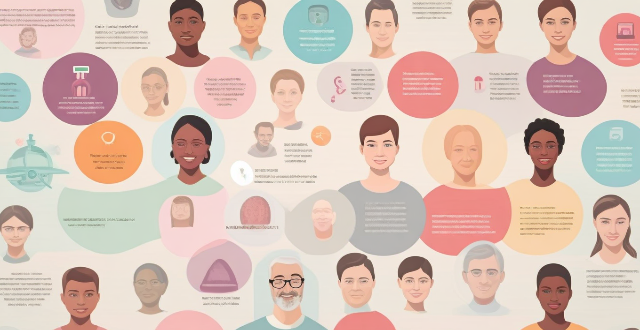
What are the key challenges facing global health security today ?
Global health security faces several key challenges, including emerging infectious diseases, antimicrobial resistance, weak health systems, political instability and conflict, and social determinants of health. These challenges threaten the well-being of people worldwide and require collective efforts to prevent, detect, and respond to infectious diseases that threaten human health.

What is the role of non-governmental organizations (NGOs) in promoting global health security ?
The text discusses the significant role of Non-Governmental Organizations (NGOs) in promoting global health security. It outlines five main contributions: providing aid and support, advocating for vulnerable populations, building health infrastructure, conducting research and analysis, and promoting health education and awareness. NGOs are often the first responders to health crises and work tirelessly to provide aid, support, and advocacy for those most affected by health emergencies. They also focus on building sustainable health infrastructure in developing countries, conducting research to better understand health issues, and promoting health education and awareness to empower individuals and communities. Overall, NGOs play a crucial role in improving health outcomes worldwide and building more resilient health systems.
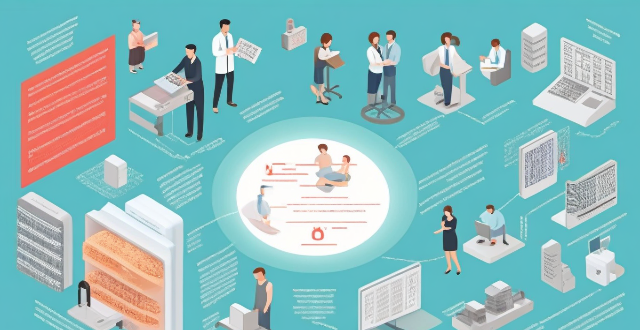
How does vaccine distribution affect public health ?
Vaccine distribution is crucial for global health, reducing disease incidence and healthcare costs while increasing productivity. Challenges include inequitable access, logistical complexities, and public perception issues.
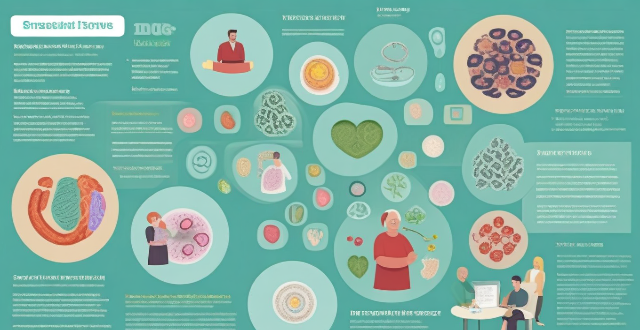
How can we strengthen the capacity of healthcare systems in low-income countries to address global health threats ?
This article discusses strategies to improve healthcare systems in low-income countries to tackle global health threats. It covers infrastructure development, human resource development, technology and innovation, partnerships and collaboration, preventive care and public health initiatives, financing and sustainability, and research and development. The article emphasizes the need for a multifaceted approach involving various stakeholders to achieve equitable healthcare for all.

What role does global warming play in climate predictions ?
The text discusses the role of global warming in climate predictions, emphasizing its multifaceted impact on various aspects of the Earth's climate system. Key points include increased temperatures leading to melting ice, rising sea levels, and changes in precipitation patterns; intensified extreme weather events like heat waves and hurricanes; ocean acidification harming marine life; alterations in ecosystems affecting animal migration and habitats; agricultural impacts such as changing crop yields and growing seasons; and human health concerns including the spread of diseases and heat-related illnesses. The conclusion stresses the importance of considering these factors in future climate projections and mitigating the effects of global warming through reduced greenhouse gas emissions.

What is the impact of financial regulation on global financial markets ?
Financial regulation is vital for maintaining stability and efficiency in global financial markets. It influences market stability by reducing volatility and preventing crises, improves risk management through enhanced transparency and control over high-risk practices, protects investors from fraud and unfair trading practices, and fosters innovation while ensuring safety and compliance. This balance is crucial for the health and growth of the global economy.

What role do international sports organizations play in fostering global cooperation ?
International sports organizations are crucial for global cooperation, promoting peace, cultural exchange, economic development, health, gender equality, environmental sustainability, and humanitarian aid.

How might global warming influence future patterns of human migration ?
Global warming is poised to significantly influence future patterns of human migration through various channels, including sea level rise, changes in agricultural zones, extreme weather events, economic impacts, health considerations, and social and political factors. These changes will contribute to shifts in where and how humans choose to live, forcing coastal communities to relocate, increasing the risk of flooding in currently habitable areas, movement away from regions that become too hot or dry for farming, shifts toward more favorable climates for growing crops, increased frequency and intensity of extreme weather events, decline in traditional industries like fishing or agriculture in certain regions due to changing conditions, growth in new industries related to renewable energy or climate adaptation in other areas attracting workers, spread of diseases like malaria and dengue fever to new regions as the organisms that carry them move into warmer areas making some areas less hospitable for human habitation due to heat-related illnesses becoming more common, conflicts over resources like water and arable land which may be exacerbated by climate change, and government policies on resettlement and climate adaptation measures that could either facilitate or hinder migration.
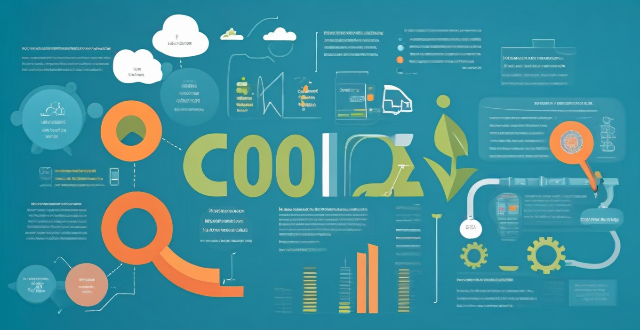
How can international cooperation on climate change contribute to global security ?
International cooperation on climate change is vital for global security. It helps mitigate environmental disasters, promotes economic stability and growth, enhances social cohesion and peace, facilitates technology and knowledge sharing, and strengthens global governance and diplomacy. Through joint efforts, nations can address one of the most pressing challenges of our time and secure a safer future for all.
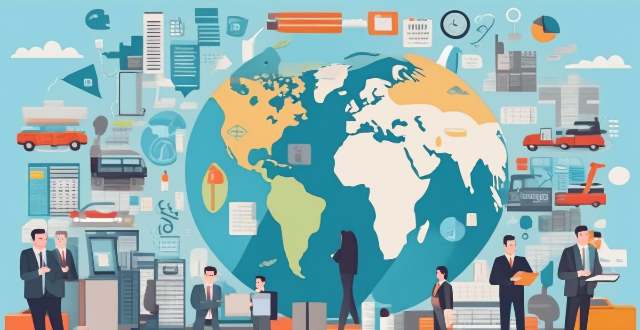
What are the latest trends in the global economy ?
The global economy is influenced by various interconnected factors including digital transformation, sustainability, global trade dynamics, monetary policies, and the rising influence of emerging markets. These trends are reshaping industries, fostering innovation, and influencing economic growth and policies worldwide.

What are the economic implications of global warming for different countries ?
Global warming has significant economic implications for countries worldwide, affecting sectors like agriculture, health, infrastructure, insurance, energy, and labor markets. Developing nations often face challenges related to food security, health concerns, and infrastructure damage due to extreme weather events. Developed nations may see impacts on insurance and property markets, the energy sector, and labor productivity. Globally, there can be trade disruptions, migration and security issues, and financial market fluctuations. Coordinated international efforts are crucial to mitigate these effects and adapt to the changing environment.

How does sea level rise impact public health, especially in coastal areas ?
Sea level rise, driven by global warming and climate change, poses significant threats to public health in coastal areas through flooding and storm surge, waterborne diseases, environmental health hazards, mental health concerns, economic impacts, and social determinants of health. Addressing this challenge requires a multifaceted approach that includes adaptation strategies, improved infrastructure resilience, and mitigation efforts to reduce greenhouse gas emissions.

What are the psychological and social impacts of living in a world affected by global warming ?
Living in a world affected by global warming can have significant psychological and social impacts on individuals and communities, including increased stress and anxiety, changes in mood and emotional well-being, cognitive effects, changes in social dynamics, impacts on mental health services, and societal responses such as adaptation and collective action. These impacts highlight the urgent need for action to address climate change and support the well-being of those affected by its consequences.
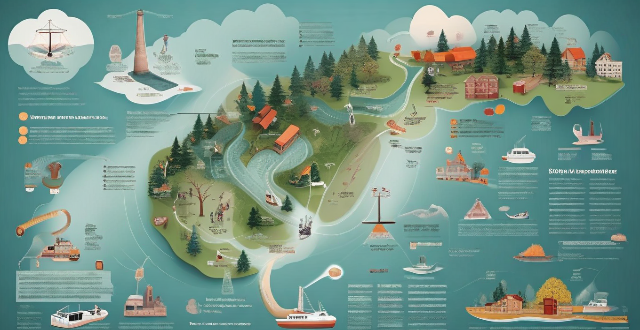
What are the impacts of climate change on global weather patterns ?
Climate change, driven by human activities like burning fossil fuels and deforestation, is altering global weather patterns. These changes include increased frequency and intensity of extreme weather events such as heatwaves, heavy precipitation, droughts, and storms, as well as changes in seasonal weather patterns like early spring onset and altered monsoon patterns. Long-term changes in weather patterns include polar amplification, ocean circulation changes, and atmospheric circulation changes. These impacts pose significant challenges for adaptation and mitigation efforts aimed at reducing negative effects on ecosystems, societies, and economies worldwide.
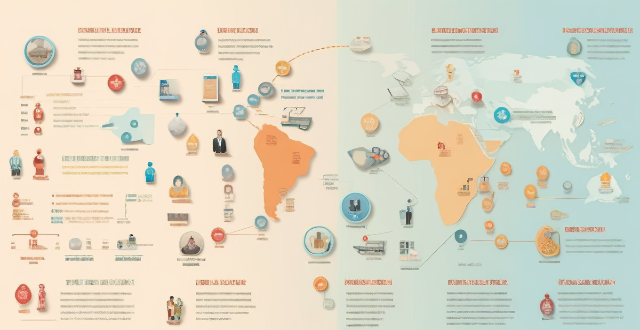
What challenges do countries face when working together on a global scale ?
Global collaboration faces political, economic, cultural, and logistical challenges. Politically, differing national interests, sovereignty concerns, and leadership dynamics can impede progress. Economically, fair resource allocation, trade agreements, and sanctions are contentious issues. Culturally, language barriers, diverse values, and educational gaps pose challenges. Logistically, coordination across time zones, travel restrictions, and technology disparities complicate matters. Addressing these challenges with open dialogue and cooperation is key to achieving shared global goals.